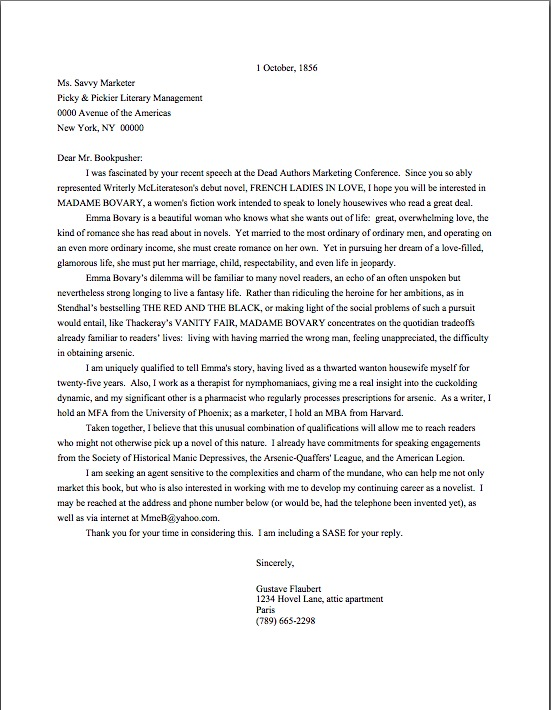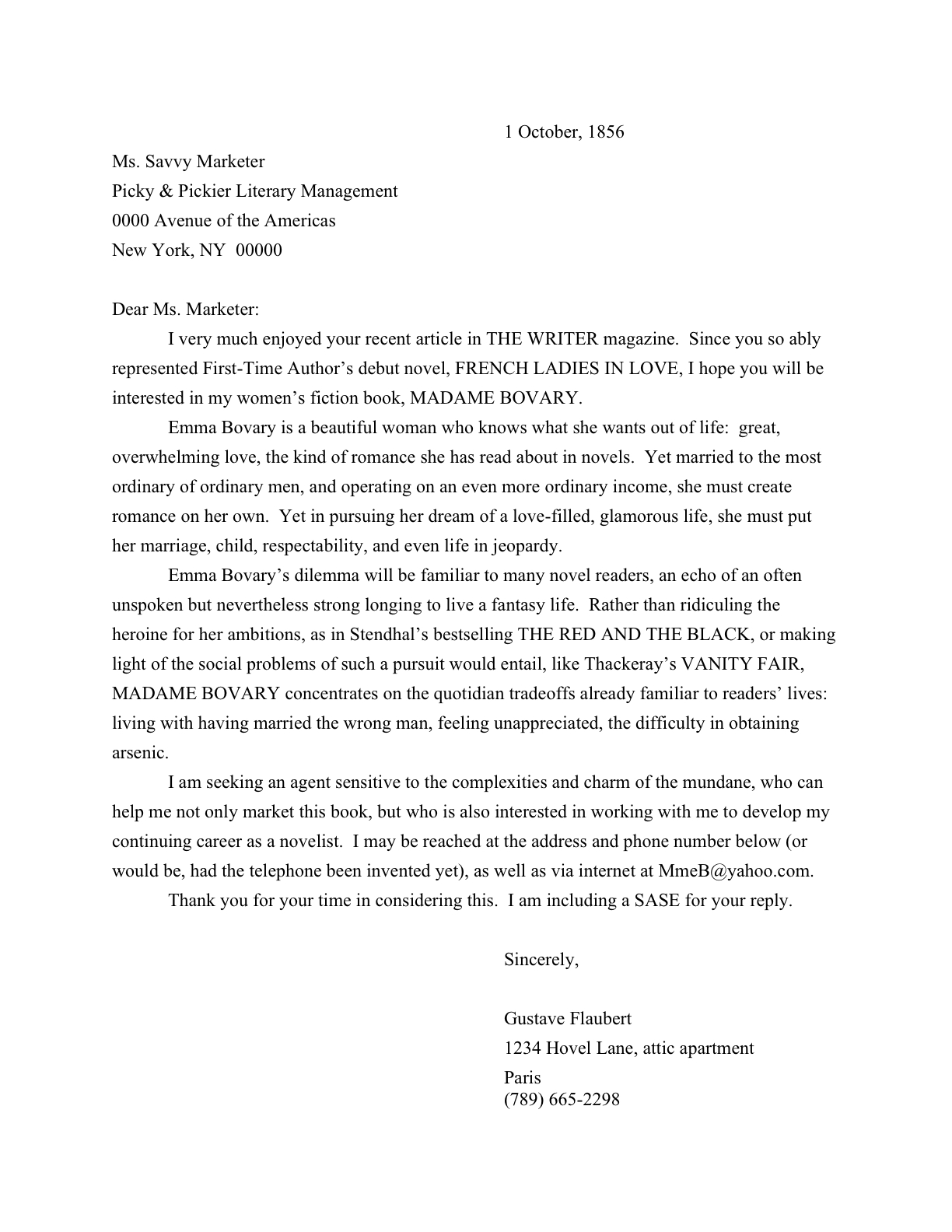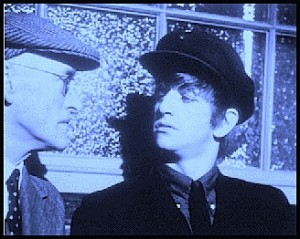
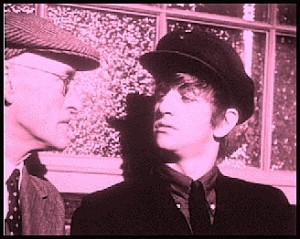
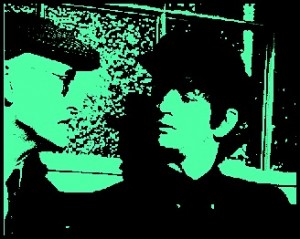
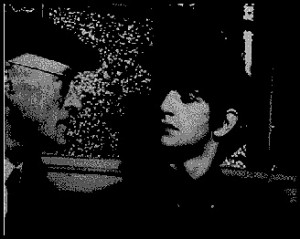
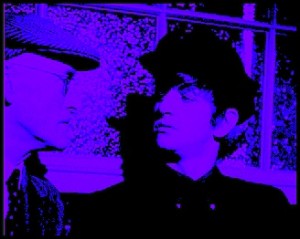
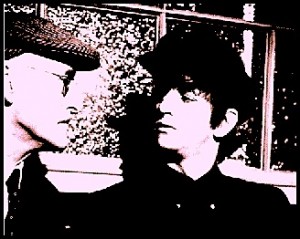
As promised, we’re nearing the end of Querypalooza, our high-speed crash course on how to write a better-than-average query letter — if, by the end of Labor Day week, your query letter is not polished to a high gloss, I shall not be to blame. But oh, as the old joke goes, are my arms ever tired!
You know how much I enjoy being thorough. Let’s turn our attention back to query letter diagnostics.
And already eyes across the English-speaking world roll. “Isn’t there an easier way to go about this?” the time-strapped cry. “No offense, Anne, but you’ve been making me concentrate so intensely on a single piece of paper for three days straight. Now, on day 4, every fiber of my being ties itself in a sailor’s knot at the very mention of a query. On top of everything you’ve pointed out here, I’m also going to have to do some research on each of the agents to whom I intend to address my highly-personalized queries. PLEASE tell me that I won’t need to write an entirely fresh missive for each one.”
Not entirely, no: quite a few paragraphs will probably be recyclable, unless you plan to gain a new credential or two between the time you send Query A and when you pop Query B into the mailbox. However, it’s never, ever, EVER a good idea to use an entire query letter again wholesale.
Why not, you ask? Do I hear sweet music in the distance?
Like any other reader, individual agents have individual likes and dislikes. As a logical result, there is no such thing as a query letter that will please every agent currently in practice.
Thus Querypalooza: the goal here is not to help you construct a generic letter that will work for every agent to whom you might conceivably decide to send it, but to assist you in ferreting out problems with the personalized missives you’re constructing for each one. Yes, you may well reuse sentences and even entire paragraphs from letter to letter, but as anyone who has had much contact with agents can tell you, these are not generalists.
Which means, to put it bluntly, that while Millicents share common pet peeves, each is looking for slightly different things in a query letter.
Stop groaning; it wouldn’t have made good strategic sense to send an identical letter out to everyone, anyway, for reasons we have been discussing for days. Besides, there is no such a thing as a universally perfect query letter, one that will wow every agent currently hawking books on the planet. It is logically impossible: agents represent different kinds of books, for one thing, so the moment you mention that your book is a Gothic romance, it is going to be rejected by any agent who does not represent Gothic romances.
It honestly is as simple as that.
More fundamentally, though, I do not accept the idea of a magical formula that works in every case. Yes, the format I have been going over here tends to work well; it has a proven track record across many book categories. However — and I hate to tell you this, because the arbitrary forces of chance are hard to combat — even if it is precisely what your targeted agency’s screener has been told to seek amongst the haystack of queries flooding the mailroom, it might still end up in the reject pile if the screener or agent is having a bad day.
What factors might produce that outcome, you ask? A million and one that are utterly outside the querier’s control.
If the agent has just broken up with her husband of 15 years that morning, for instance, it’s probably not the best time to query her with a heartwarming romance. If she slipped on the stairs yesterday and broke both her wrists, she’s probably not going to be all that receptive to even the best knitting book today. And if he has just sprained his ankle in tripping over that stack of manuscripts he meant to read two months ago, it’s highly unlikely that any query is going to wow him within the next ten minutes, even if it were penned by William Faulkner, Toni Morrison, and William Shakespeare in an unprecedented show of time-traveling collaboration.
No writer, however gifted, can win in such a situation; even the query that wins most will lose some. Don’t squander your precious energies worrying about it.
A strategic-minded querier can, however, avoid sending e-mailed queries or submissions over the weekend, the most popular time to hit the SEND button: Millicent’s inbox is pretty much guaranteed to be stuffed to the gills on Monday morning. Ditto with the first few days after her boss has returned from a writers’ conference, Labor Day (hint, hint), or, heaven help us, the single heaviest querying time of all, immediately after January 1.
Trust me, all of those New Year’s resolution-fulfillers will provide her with more than enough reading material to keep her cross and rejection-happy for a few weeks. Best to avoid slipping anything you want her to approve under her nostrils then. Unless, of course, she’s just fallen in love, or her college roommate just won the Pulitzer Prize in journalism, or she’s found a hundred-dollar bill on the street.
There will always be aspects of querying success that you cannot control, and you will be a significantly happier writer in the long run if you accept that there is inevitably an element of luck involved — as well as writing talent, marketing savvy, and query-construction skill.
Frankly, the luck part took me quite a long time to accept myself. I once received a rejection from an agent who had hand-written, This is literally the best query letter I have ever read — but I’ll still have to pass in the margins of my missive — as if that was going to make me feel any better about being rejected.
To tell you the truth, this compliment annoyed me far more than it pleased me, and like so many aspiring writers, my mind flooded with resentful questions. Had the agent just completed a conference call with every editor in the business, wherein they held a referendum about the marketability of my type of novel, voting it down by an overwhelming margin? Had she suddenly decided not to represent the kind of book I was presenting due to a mystical revelation from the god of her choice? Or had the agent just gotten her foot run over by a backhoe, or just learned that she was pregnant, or decided to lay off half her staff due to budget problems?
Beats me; I’ll never know. Which is kind of funny, because I’ve had some very nice chats with this agent at conferences since.
The important thing to recognize is that whatever was going on at that agency, it was beyond my control. Until I am promoted to minor deity, complete with smiting powers, love potions, and telepathic control of the mails, I just have to accept that I have no way of affecting when any query — or manuscript, or published book — is going to hit an agent, editor, reviewer, or reader’s desk.
(Okay, so I do have more control over when my agent sees my manuscripts — but even then, it’s up to him when to read them. You can lead a horse to water, etc.)
My advice: concentrate on the aspects of the interaction you CAN control. Like, say, the matters on our troubleshooting list.
(25) If I intend to submit this query to agents based in the United States, have I used ONLY US-spellings throughout my query packet? Or UK spellings, if I am sending it there or to Canada?
This is true of submissions as well. While honour, judgement, and centre are perfectly correct in some places in the English-speaking world, they are technically incorrect in the US, just as honor, judgment, and center are on the other side of the pond, or even north of the border.
Tailor your query and submission to what will look right to your intended audience: the agent. You don’t want Millicent to think that you just don’t know how to spell, do you, oh centred, honourable person of sound judgement?
(26) When I mentioned the book category in the first paragraph of my query, did I use one of the established categories already in use by the publishing industry, or did I make up one of my own?
Queriers new to the game often believe, mistakenly, that claiming that their books are so completely original, so unlike anything else currently for sale to the English-reading public, that even trying to squeeze them into one of the conceptual boxes provided by the industry would undersell their originality. Instead, these well-meaning souls just make up their own categories with names like Hilarious Western Romance Travelogue or Time-Travel Thriller.
They think — again, mistakenly — that such names are helpful to agents. How could being more specific than the average bookseller’s shelving system be bad?
In quite a number of ways, actually. To name but two, mythical book categories are unprofessional, and using them betrays a misunderstanding of why agents want to see them in query letters: to figure out whether the book presented is the kind that they currently want to sell. Also, an aspiring writer who clearly knows that he’s supposed to name a book category but tries to wiggle around it is playing rules lawyer, not a strategy likely to convince Millicent and her boss that he’s the type who just loves following directions without a fight.
Do it because they say so. If you’re at a loss about how to go about narrowing down the choices, please see the HOW TO FIGURE OUT YOUR BOOK’S CATEGORY section on the archive list at right.
“Can’t make me!” some rebels shout. “No one’s going to put MY book in a conceptual box.”
That’s quite true: no one can force an aspiring writer to commit to a book category — at least before she’s signed with an agent, of course. Agents make their clients commit all the time; in fact, it’s not all that unusual for an agent to accept a new project as one category, ask for targeted revisions, then pitch it to editors as a different category.
A book category is nothing but a conceptual box, after all, merely a marketing label used to get a manuscript to the people who represent and sell similar books. So a categorical (so to speak) refusal to allow your work to be labeled at the query stage isn’t going to impress anybody familiar with how books are sold in this country.
Especially not Millicent — and especially if she happens to open your query at an inopportune moment.
Don’t believe me? Okay, picture this: Millicent’s subway train from her tiny apartment in Brooklyn that she shares with four other underpaid office workers has broken down, so she has arrived at work half an hour late. There’s an agency-wide meeting in an hour, and she needs to clear her desk of the 200 query letters that came yesterday, in order to be ready for the 14 manuscripts her boss is likely to hand her at the meeting. After she has speed-read her way through 65 of the queries, a kind co-worker makes a Starbucks run. Just before Millicent slits open your query (#126), she takes a big gulp of much-needed caffeine — and scalds her tongue badly.
Your query with its fanciful pseudo book category is now in her hand. What is she more likely to do, to humor your reluctance to place your book in the traditional conceptual box, as her boss will require her to do if she recommends picking you up as a client, or to shrug, say, “Here’s another one who doesn’t understand how the business works,” and move on to the next envelope?
Blistered tongue or not, do you really want to bait her?
If you’re absolutely, positively convinced that it would be an outrage upon the very name of truth to commit your novel to any one category, PLEASE don’t make up a hyphenate like Western-Fantasy-How-to, in order to try to nail it with scientific precision. In a pinch, if your novel doesn’t fall clearly into at least a general category, just label it FICTION and let the agent decide.
Provided, of course, that you are querying an agent who routinely represents fiction that does not fit neatly into any of the major established categories. I definitely wouldn’t advise this with, say, an agent who represents only romantica or hard-boiled mysteries.
But whatever you do, avoid cluttering up your query letter, synopsis — or indeed, any communication you may have with an agent or editor prior to clutching a signed contract with them in your hot little hand — with explanations about how your book transcends genre, shatters boundaries, or boldly goes where no novel has gone before.
Even if it’s true. Perhaps especially if it’s true.
Yes, such a speech makes a statement, but probably not the one the writer intends. Here’s how it translates into agent-speak: “This writer doesn’t know how books are sold.”
(27) Have I listed my credentials well in my platform paragraph? Do I come across as a competent, professional writer, regardless of my educational level or awards won?
I’m going to be revisiting the platform paragraph in more detail in a future post, but here’s the short version: if you have any background that substantially aided you in writing this book, you need to make sure you mention it in your query. Period. Even your camp trophy for woodworking can be a selling point, in the proper context. Ditto with any publication, anytime, anywhere, regardless of whether you were paid for writing it.
But truthfully, unless you are writing a book that requires very specific expertise, most of your credentials will not actually be relevant to your book. But do say where you went to school, if you did, and any awards you have won, if you have. To professional eyes, these too are what I like to call ECQLC (Eye-Catching Query Letter Candy).
If you are a member of a regularly-meeting writers’ group, feel free to mention that, too: anything that makes you sound like a serious professional is appropriate to include. But if you don’t have anything you feel you can legitimately report here, don’t stretch the truth: just leave out this paragraph.
Unless, of course, you happen to be trying to find an agent or editor for a nonfiction work. Which brings me to…
(28) If I am querying nonfiction, have I made my platform absolutely plain? Would even a Millicent in a hurry understand why I am uniquely qualified to write this book, if not actually the best-qualified person in the known universe to do it?
A platform, for those of you unfamiliar with the term, is the background that renders a nonfiction author qualified to write a particular book. Consequently, “What’s the author’s platform?” is pretty much always the first question either an agent or an editor will ask about any nonfiction book.
Which means — and I do seem to being blunt quite a bit today, don’t I? Blame it on lack of sleep — that a nonfiction query that does not make its writer’s platform absolutely clear and appealing will practically always be rejected.
And yes, you do need to satisfy this criterion if your nonfiction field happens to be memoir.
I know, I know: it’s self-evident that a memoirist is the world’s leading authority on his own life, but as I’ve mentioned before, a memoir is almost invariably about something other than the author’s sitting in a room alone. If your memoir deals with other subject matter, the platform paragraph of your query letter is the ideal place to make the case that you are an expert on that.
(29) Have I made any of the standard mistakes, the ones about which agents often complain?
I like to think of this as a primary reason to attend writers’ conferences regularly: they are some of the best places on earth to collect massive lists of the most recent additions to agents and editors’ pet peeves. I’ve been going through most of the major ones throughout this series, but some of them can be quite itty-bitty.
Referring to your book as a fiction novel, for instance, is invariably on the top of every agent’s list; in point of fact, all novels are fiction, by definition. A nonfiction memoir, a real-life memoir, a true memoirand nonfiction based on a true story, as well as permutations on these themes, are all similarly redundant.
Just don’t do it.
Waffling about the book category is also a popular choice, as are queries longer than a single page, including promotional blurbs from people of whom the agent has never heard (Chester Smith says this is the most moving book about trout fishing he’s ever read!), or — chant it with me now, folks — ANY mention of the book’s potential for landing the author on Oprah. Any or all of these will generally result in the query being tossed aside, unread.
Especially the last; the average screener at a major NYC agency could easily wallpaper her third-floor walk-up in Brooklyn seven times over with query letters that make this claim — and I’m talking about ones received within a single month.
Is this the last of the query checklist, since it’s now officially after Labor Day? Not quite, but close. I can’t absolutely promise that my arms are going to be up to posting again today — I’m due to drag myself to the physical therapist in a few hours, and he’s bound to frown at least a little on how much I’ve been typing this weekend — but I really would like to polish off Querypalooza as soon as possible.
So tune in this evening at our usual Querypalooza time — and, of course, to keep up the good work!

